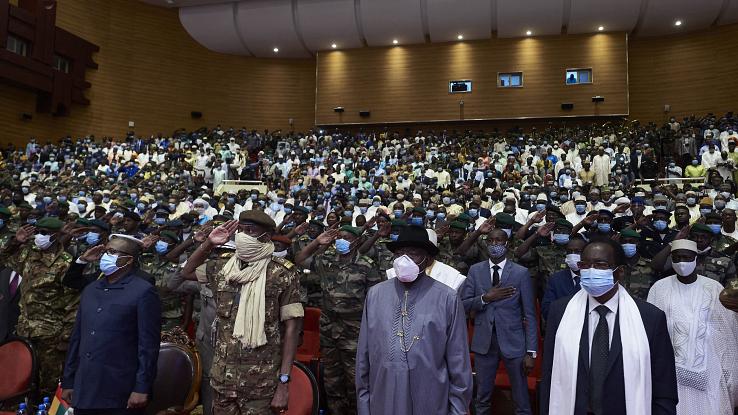The West African regional grouping ECOWAS on Sunday hardened its stance against military-ruled Mali and Guinea, imposing new individual sanctions and calling on both countries to honour timetables for a return to democracy.
The Economic Community of West African States “has decided to sanction all those implicated in the delay” in organising elections set for February 27 in Mali, ECOWAS Commission President Jean-Claude Kassi Brou told AFP after a summit of the 15-nation group in the Ghanaian capital Accra.
He said Mali had “officially written” to Ghanaian President Nana Akufo-Addo, who holds the rotating presidency of ECOWAS, to inform him that the Sahel country could not hold elections as planned.
“All the transition authorities are concerned by the sanctions which will take immediate effect,” Brou said, adding the travel bans and assets freezes targeted family members as well.
In a final declaration following Sunday’s summit, ECOWAS said it “highly deplores the lack of progress” towards staging elections in Mali.
The situation has raised concerns internationally, prompting a UN Security Council delegation to Mali late last month.
Council members “reiterated their call for the Malian transitional authorities to achieve… the handover of power to democratically elected civilian authorities within the agreed timeline,” the officials said in a statement.
Mali’s junta expelled the ECOWAS special envoy Hamidou Boly from the country on October 26, declaring him “persona non grata”.
On Sunday, ECOWAS condemned the expulsion.
As for Guinea, where soldiers seized power on September 5, ECOWAS decided to uphold the country’s suspension from the bloc as well as sanctions against individual junta members and their families.
It also reiterated its demand for the “unconditional release” of president Alpha Conde, 83, who has been under house arrest since his ouster.
In the final declaration, it praised the adoption of a “transition charter”, the appointment of a civilian prime minister and the formation of a transitional government — echoing Brou following an ECOWAS delegation to the country in October.
But it called on the authorities to “urgently submit a detailed timetable… towards the holding of elections” in the country of 13 million people.
Colonel Mamady Doumbouya, who overthrew Conde after months of discontent against his government, had promised to restore civilian rule after a transition period of unspecified length.
The ECOWAS leaders named Mohamed Ibn Chambas as its special envoy to Guinea, which had spent decades under authoritarian or dictatorial regimes before Conde’s election in 2010.
At a September summit, ECOWAS demanded that Guinea hold elections within six months.
The regional leaders also demanded that the Mali junta adhere “strictly” to that country’s transition timetable.
ECOWAS rescinded economic sanctions against Mali and its suspension from the organisation when the junta headed by Colonel Assimi Goita pledged a transition of no more than 18 months.
But Goita went on to mount a new coup in May, deposing transitional president Bah Ndaw and his prime minister, Moctar Ouane.
ECOWAS suspended Mali once again, but did not apply new sanctions.
Swathes of Mali, a vast nation of 19 million people, lie outside of government control because of a jihadist insurgency that emerged in the north in 2012, before spreading to the centre of the country as well as neighbouring Burkina Faso and Niger.
Brou noted that the deployment of contractors from the Russian paramilitary group Wagner in Mali was “one of the concerns of the heads of state”.
ECOWAS will hold its next summit in December when it will consider more sanctions “if the situation persists”, Sunday’s declaration stated.





